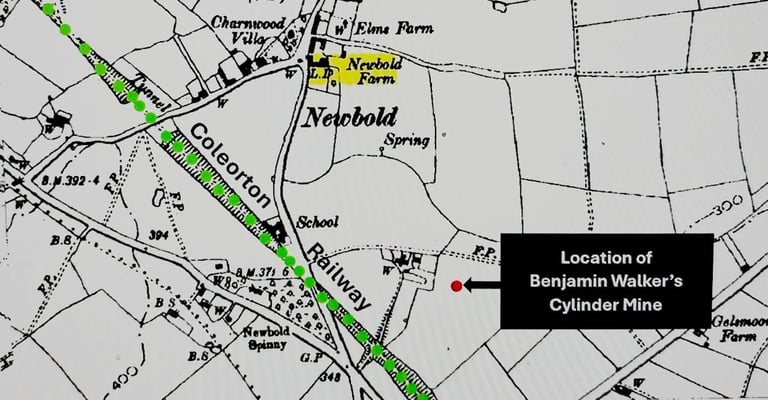Benjamin Walker
Benjamin Walker was born in Coleorton in 1785. From survey records produced by Edward Knight shortly after the death of Sir George Howland Beaumont in 1827, it was noted that Benjamin Walker was living at a farm in Newbold. It is likely that this was Newbold Farm which had mining shafts on its land. The survey reported that the farm was 'in a reasonable state apart from the condition of the fields and fencing around his colliery which suffered from the unruly conduct of the people at the coal pits' (source – Griffydam History Group).


Benjamin Walker saw opportunity in coal mining and in 1830, he also took the lease of Smoile Colliery from Sir George Beaumont to expand his coal mining enterprise. Smoile Colliery operated until 1853.
The 1841 census lists Benjamin Walker as a coal master and farmer, now living at White House Hall Farm, Coleorton. He was married to Francis (born 1791 in Worthington) and they had seven daughters.
In order to sell his coal, Benjamin needed a way to transport his product out of the village. He joined a consortium of businessmen which included Robert Stephenson (son of George Stephenson), and Sir George Beaumont, who commissioned the Coleorton Railway in 1833 to serve the increasing number of mines in the area.
A map from 1777 shows evidence of mining to the south-east of Newbold. A later map from 1885 shows a mine shaft in the same location. This is the site of Newbold’s Cylinder Pit, which was operated by Benjamin Walker from 1827 until around 1860.


